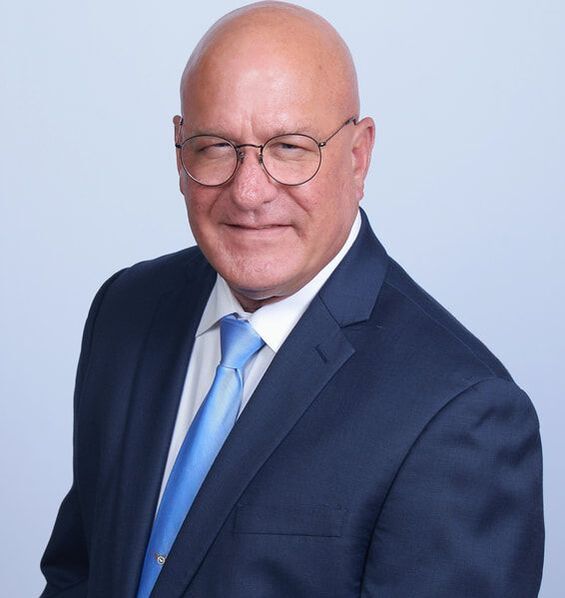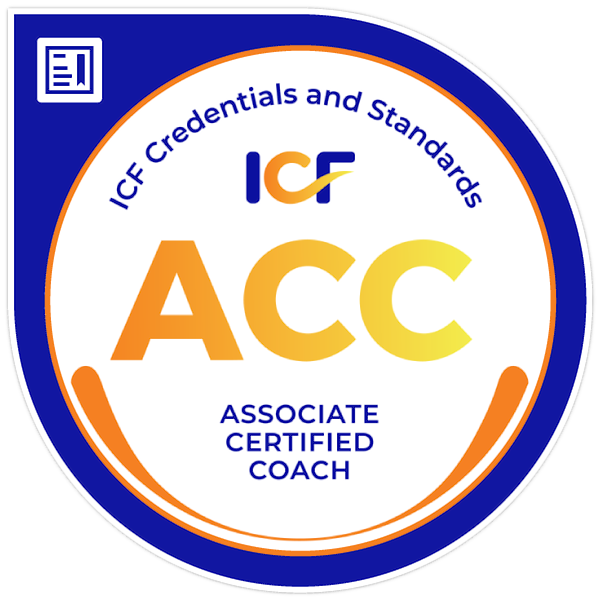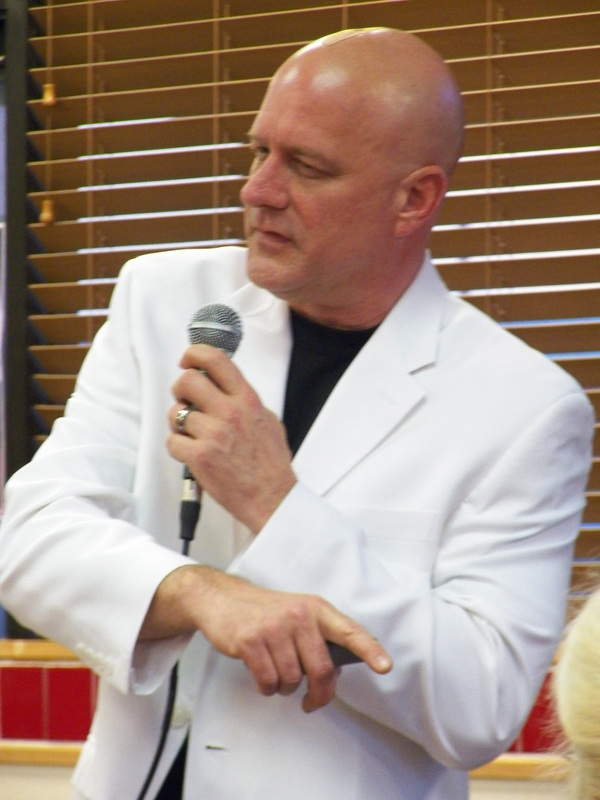Leader development strategies in organizations that are products of the same zombie ideas carrying high expectations coupled with the pressure to sort out everyday problems may provide no constructive avenue for leader development either. TATIANA BACHKIROVA & PETER JACKSON Oxford Brookes Business School  Understanding 'Zombie Leadership' In a recent groundbreaking paper titled, Zombie leadership: Dead ideas that still walk among us, researchers from Australia, Sweden, and the UK shed light on a concept that's quietly infiltrated many organizations: Zombie leadership. Drawing on a similar concept from economics research, these are leadership concepts upheld not by evidence or critical analysis, but by groups pushing their own agendas. As the authors aptly put it, controlling the narrative of leadership means controlling power dynamics within organizations and society. Some of these zombie leadership ideas include:
These misconceptions often seep into leadership training programs, hindering genuine development and perpetuating unrealistic standards. And a great deal of dominant leadership theories that are relied upon for training are about heroic leaders and relatively passive masses—definitely a zombie idea. In addition, these theories are abstract and difficult to put into practice. They also set up an ideal standard so high, that it challenges actual leaders to strive for that ideal image and performance that can cause one to lose confidence and feel frustrated and secretly defeated. The researchers go into depth exploring the eight "axioms" of zombie leadership that they identify and the threats they each pose. They said, "The threat posed by zombie leadership is manifold and it contributes to the creation of a deeply unequal world... " What do leaders really want and need? Recognizing the shortcomings of zombie leadership, researchers at Oxford Brookes Business School delved into what leaders genuinely require to tackle challenges and grow. Their study, What do leaders really want to learn in a workplace? A study of the shifting agendas of leadership coaching, dissected the interplay between external and internal factors shaping leaders' learning needs. They recognized that "Leader development strategies in organizations that are products of the same zombie ideas carrying high expectations coupled with the pressure to sort out everyday problems may provide no constructive avenue for leader development either." By analyzing coaching sessions over time, the researchers identified a spectrum of topics reflecting leaders' evolving needs. They examined how both outside factors (leaders' environments) and personal (or internal motivations and mechanisms) come together to impact leaders' experience and learning needs at work. They asked coaches in long-term coaching relationships with leaders ( six months to one year) to document coaching themes and time-tagged them at three points in the coaching relationship: Beginning, middle, and end. This allowed them to create a taxonomy of coaching topics that represented the intersection between the clients' external and internal demands that create their experiences. Coaching topics are what the client brings to the coaching session to focus on in order to grow, develop, and strategize action plans with the purpose of achieving goals and meeting developmental needs. This strategy allowed them to not only identify what leaders wanted to learn but also when these topics typically came up for leaders throughout the coaching relationship. What leaders really want Forty topics emerged that were grouped into eight categories.
Key take-aways
Conclusion In a landscape littered with zombie leadership ideas, it's imperative to shift focus towards authentic leader development. By acknowledging leaders' multifaceted needs and providing tailored support, organizations can foster environments where leaders thrive and grow, transcending the limitations of outdated paradigms. Have an amazing journey today! Alan Mikolaj is a seasoned coach and leadership development consultant with nearly 20 years of experience. He is passionate about helping leaders transform their leadership, their teams, and their organizations. He has an impactful, professional approach driven by a passion for meaning and purpose, a growth mindset, and a commitment to excellence and service in order to drive change and results. Alan holds his Master of Arts in Clinical Psychology and Associate Certified Coach credential with the International Coaching Federation (ICF) and maintains their ethics and standards of behavior, including the standards regarding confidentiality. You can learn more about them on the ICF website. Transformational change starts with a conversation! Alan is on a mission to partner with like-minded leaders who want to make a positive difference in the world. Schedule your free, one-hour session by clicking here: Discovery Conversation with Alan Or call or email: Contact Page
0 Comments
The mission of the individual needs to align with the mission of the team, which needs to align with the mission of the organization. CHARLES GARFIELD Author of the widely acclaimed "Peak Performance" trilogy: Peak Performers, Team Management, & Second to None  In the tapestry of leadership, purpose serves as the guiding thread weaving together individuals, teams, organizations, and society at large. Charles Garfield's profound insight encapsulates the essence of purpose-driven leadership—a philosophy that transcends individual aspirations to embrace collective missions that resonate with the pulse of humanity and the planet. At the core of purpose-driven leadership lies the acknowledgment that each individual possesses a unique life mission and a set of deeply held core values. In addition to that, leaders need a personal leadership philosophy. These elements serve as the compass guiding one's journey, illuminating the path toward fulfillment and significance. However, the true power of purpose emerges when it converges with the missions of teams, organizations, and society—a harmonious alignment that ignites transformational change. Garfield's words echo the interconnectedness of missions, emphasizing the imperative of alignment. Just as a conductor orchestrates a symphony, a purpose-driven leader harmonizes the diverse voices within their team, aligning individual passions with collective goals. This alignment fosters a sense of belonging and shared purpose, fueling collaboration and innovation. Yet, the scope of purpose extends beyond the confines of the organization. A purpose-driven leader recognizes their responsibility to contribute to the greater good of society and the planet. They understand that organizational success is not measured solely by profit margins but by the positive impact it generates on communities and the environment. Thus, they strive to align the mission of their organization with broader societal and planetary needs, fostering sustainability, equity, and social responsibility. More than ever, we need purpose-driven leaders like this today. Leveraging purpose as a catalyst for change requires intentionality and vision. It begins with the introspective journey of self-discovery, as leaders identify their own life mission, core values, and leadership philosophy. Armed with this clarity, they can then articulate a compelling vision that inspires and mobilizes their team toward a common goal. Creating a shared mission and values statement with the team reinforces a sense of unity and direction, cultivating a culture rooted in meaning and purpose. Through open dialogue and collaboration, leaders empower their team members to contribute their unique strengths and perspectives, fostering a sense of ownership and commitment. Studies continue to demonstrate how internal or intrinsic motivators and reinforcement, like meaning and purpose, are what really drives behavior, engagement, retention and more. The journey toward alignment does not end within the confines of the organization. Purpose-driven leaders recognize the interconnectedness of their mission with the broader context of society and the planet. They champion causes that promote social justice, environmental sustainability, and community empowerment, aligning the organization's efforts with the greater good. In the tapestry of leadership, purpose serves as the unifying thread that connects individuals, teams, organizations, and society. As leaders, it is our responsibility to weave a narrative of purpose that transcends boundaries and inspires collective action. By aligning our missions with the needs of the world around us, we can create a ripple effect of positive change that reverberates far beyond the confines of our organizations and our lifetimes. In the grand symphony of life, let purpose be our guiding melody—a harmonious blend of individual aspirations and collective endeavors, resonating with the heartbeat of humanity and the planet we call home. To embark on your own journey of purpose-driven leadership, learn more about our Purpose-Driven Leadership Program here.
I am who I am… This is what you shall tell the Israelites: I AM sent me to you. THE VOICE OF GOD Exodus 3:14 (Amplified Bible, Classic Edition) The name of God for the Israelites is the word Yahweh, which means, "He is." The Hebrew word from the Torah, ‘ehyeh, means “I Am.” When Moses asked who should he say who sent him when he encountered the burning bush, God's answer in the original ancient Hebrew was “’ehyeh ’asher ’ehyeh” or “I am who I am” or in other translations, "I am that I am." Jesus of Nazareth later makes reference to this using the word "'ehyeh" when referencing himself when he is quoted as saying, “I solemnly declare it: before Abraham came to be, I Am” (John 8:58). According to the story, this prompted people in the crowd to pick up stones to throw at him at such blasphemy. He escaped without incident. The Sanskrit word Aham, also means "I am." The ancient OM pronounced "AUM", familiar to many who practice meditation, is a derivative of Aham. OM is considered to be the original name of God by many Hindus and that by repeating the sound as a mantra during meditation, can help you deeply relax and achieve higher levels of consciousness and powers of manifestation. Hindus believe that in the creation of the universe, the divine, all-encompassing consciousness took the form of the first and original vibration, manifesting as the powerful sound AUM. The sound of AUM resonates in many religious and spiritual traditions for the name of the Divine Creating Force or Ultimate Being: Allah, Alpha and Omega, I Am, Buddha, God, Krishna, Ra, Tao, or Yahweh, for example. The sound of “ah” is common in all of these names. Dr. Wayne Dyer says about this sound, “…you begin to manifest without the use of the mind. It is done through the power of sound… It is the first sound of creation.” Saying positive “I am...” statements and using the AUM sound as a mantra can be a powerful experience, especially if done positively, routinely, and consistently. It can help you enter a meditative state more quickly, relax more fully, and can help you achieve higher levels of consciousness or a higher state of being. It calms the mind and brings about a peaceful state. It is then that you are most creative, more focused, make better decisions, and are more effective. Some believe that invoking the Great I Am invokes the power of creation and manifestation and so, to be very careful about what we follow with any "I am..." statement. Our negative self-talk like, "I am stupid" or "I am a failure" or "I am poor" can, whether through human psychology or the power of unwittingly invoking God's name, be self-fulfilling prophecies or invoking a universal spiritual power. In The Purpose-Driven Leadership Program, I share a powerful, inspirational YouTube video that I sometimes use as a great way to start my day or give myself a pick-me-up whenever I feel like I need one. What Successful People Do In the First 8 Minutes of Their Morning features several prominent speakers, including Joel Olsteen. In the video he addresses the power of "I am..." statements. Today I want to share it with you below. One of my favorite ways to integrate the AUM sound comes from a powerful musical meditation that Wayne Dyer created to support his book, Wishes Fulfilled: Mastering the Art of Manifesting. He reports that in his research while writing his book, he came upon another book by James F. Twyman, The Moses Code, and found that tonal qualities could be created to match the Great I am. I am so grateful that it is still available on YouTube and I use it often. It's beautiful and peaceful tones and music while meditating or contemplating can be powerful. It opens with some explanation by Dr. Dyer and the actual meditation starts at 07:20. It's a long video. So, I usually only listen to just a few minutes while I sit and do some block breathing and either contemplate some aspects of my Life Mission/Leadership Philosophy and Core Values statement or just meditate, quieting my mind and body. Enjoy! Have an amazing journey today! Alan Mikolaj is a seasoned coach and leadership development consultant with nearly 20 years of experience. He is passionate about helping leaders transform their leadership, their teams, and their organizations. He has an impactful, professional approach driven by a passion for meaning and purpose, a growth mindset, and a commitment to excellence and service in order to drive change and results. Alan holds his Master of Arts in Clinical Psychology and Associate Certified Coach credential with the International Coaching Federation (ICF) and maintains their ethics and standards of behavior, including the standards regarding confidentiality. You can learn more about them on the ICF website. Transformational change starts with a conversation! Alan is on a mission to partner with like-minded leaders who want to make a positive difference in the world. Schedule your free, one-hour session by clicking here: Discovery Conversation with Alan Or call or email: Contact Page For behold, the kingdom of God is within you [in your hearts] and among you [surrounding you]. JESUS OF NAZARETH Luke 17:21 (Amplified Bible, Classic Edition) The Rabbi’s Gift was written in 1979 by the hermit, Francis Dorff, O. Praem and made popular by M. Scott Peck, MD, by reproducing a version of it in the prologue to his book, The Different Drum. I shared the below version in a blog (not sure where I got it) in August of 2012. Since my server only goes back to October of that year, I'm re-sharing it with you today. We need its message more than ever today.  THE RABBI'S GIFT A famous monastery had fallen on hard times. Formerly its many buildings were filled with young monks, but now it was all but deserted. People no longer came there to be nourished by prayer, and only a handful of old monks shuffled through the cloisters serving God with heavy hearts. On the edge of the monastery woods, an old rabbi had built a little hut. He would come there, from time to time, to fast and pray. No one ever spoke with him, but whenever he appeared, the word would be passed from monk to monk, “The rabbi walks in the woods.” And, for as long as he was there, the monks would feel sustained by his prayerful presence. One day the abbot decided to visit the rabbi and open his heavy heart to him. So, after the morning Eucharist, he set out through the woods. As he approached the hut, the abbot saw the rabbi standing in the doorway, as if he had been awaiting the abbot's arrival, his arms outstretched in welcome. They embraced like long-lost brothers. The two entered the hut where, in the middle of the room, stood a wooden table with the scriptures open on it. They sat for a moment in the presence of the Book. Then the rabbi began to weep. The abbot could not contain himself. He covered his face with his hands and began to cry too. For the first time in his life, he cried his heart out. The two men sat there like lost children, filling the hut with their shared pain and tears. But soon the tears ceased and all was quiet. The rabbi lifted his head. “You and your brothers are serving God with heavy hearts,” he said. “You have come to ask a teaching of me. I will give you a teaching, but you can repeat it only once. After that, no one must ever say it aloud again.” The rabbi looked straight at the abbot and said, “The Messiah is among you.” For a while, all was silent. The rabbi said, “Now you must go.” The abbot left without a word and without ever looking back. The next morning, the abbot called his monks together in the chapter room. He told them he had received a teaching from the 'rabbi who walks in the woods' and that the teaching was never again to be spoken aloud. Then he looked at the group of assembled brothers and said, “The rabbi said that one of us is the Messiah.” The monks were startled by this saying. “What could it mean?” they asked themselves. “Is Brother John the Messiah? Or Brother Matthew or Brother Thomas? Am I the Messiah? What could all this mean?” They were all deeply puzzled by the rabbi's teaching, but no one ever mentioned it again. As time went by, the monks began to treat one another with a new and very special reverence. A gentle, warm-hearted, concern began to grow among them which was hard to describe but easy to notice. They began to live with each other as people who had finally found the special something they were looking for, yet they prayer the Scriptures together as people who were always looking for something else.  When visitors came to the monastery they found themselves deeply moved by the life of these monks. Word spread, and before long people were coming from far and wide to be nourished by the prayer life of the monks and to experience the loving reverence in which they held each other. Soon, other young men were asking, once again, to become a part of the community, and the community grew and prospered. In those days, the rabbi no longer walked in the woods. His hut had fallen into ruins. Yet somehow, the old monks who had taken his teaching to heart still felt sustained by his wise and prayerful presence. What does the story mean to you? Have an amazing journey today! Alan Mikolaj is a seasoned coach and leadership development consultant with nearly 20 years of experience. He is passionate about helping leaders transform their leadership, their teams, and their organizations. He has an impactful, professional approach driven by a passion for meaning and purpose, a growth mindset, and a commitment to excellence and service in order to drive change and results. Alan holds his Master of Arts in Clinical Psychology and Associate Certified Coach credential with the International Coaching Federation (ICF) and maintains their ethics and standards of behavior, including the standards regarding confidentiality. You can learn more about them on the ICF website. Transformational change starts with a conversation! Alan is on a mission to partner with like-minded leaders who want to make a positive difference in the world. Schedule your free, one-hour session by clicking here: Discovery Conversation with Alan Or call or email: Contact Page |
Alan Mikolaj
Alan Mikolaj is a a professional, experienced, positive, and passionate speaker, leadership and organizational development consultant, change agent, author, and coach. He holds his Master of Arts degree in Clinical Psychology from Sam Houston State University. He is a certified graduate coach from Coaching Out of the Box and holds his ACC and membership with the International Coaching Federation (ICF). Free Discovery Conversation!
Impactful change starts with a conversation! Schedule your free, one-hour session by clicking here: Discovery Conversation with Alan
Or call or email: Contact Page In his third book, A Travel Guide to Leadership, Alan offers you simple, fundamental, and powerful lessons that have the power to transform you, your relationships, and your career.

Blog Archives
July 2024

Linked2Leadership
Ranked #1 Business Blog! |
|
CONTACT
TEL: 346-291-0216 EMAIL: [email protected] SCHEDULE TIME WITH ALAN Free Discovery Conversation with Alan |













